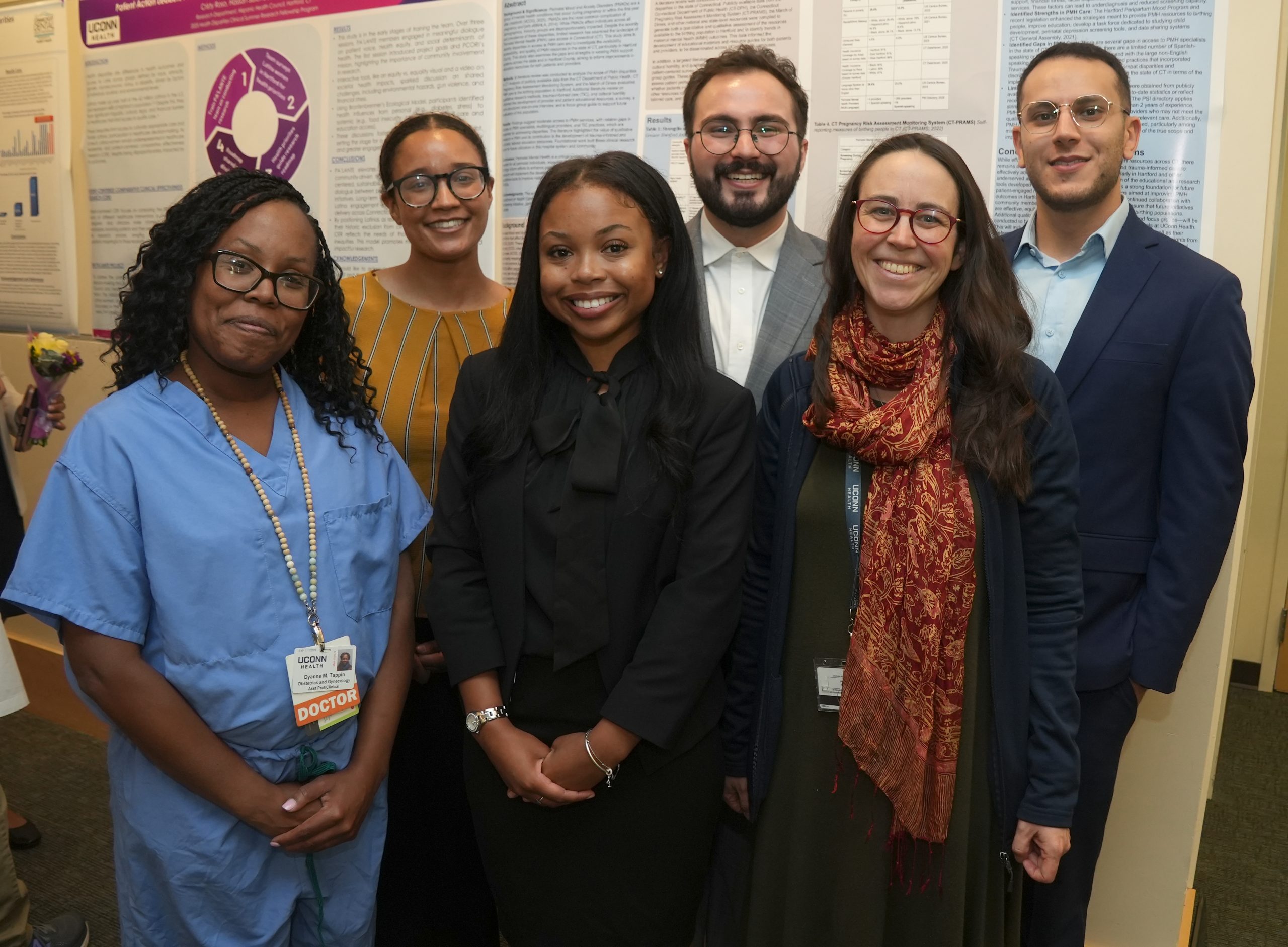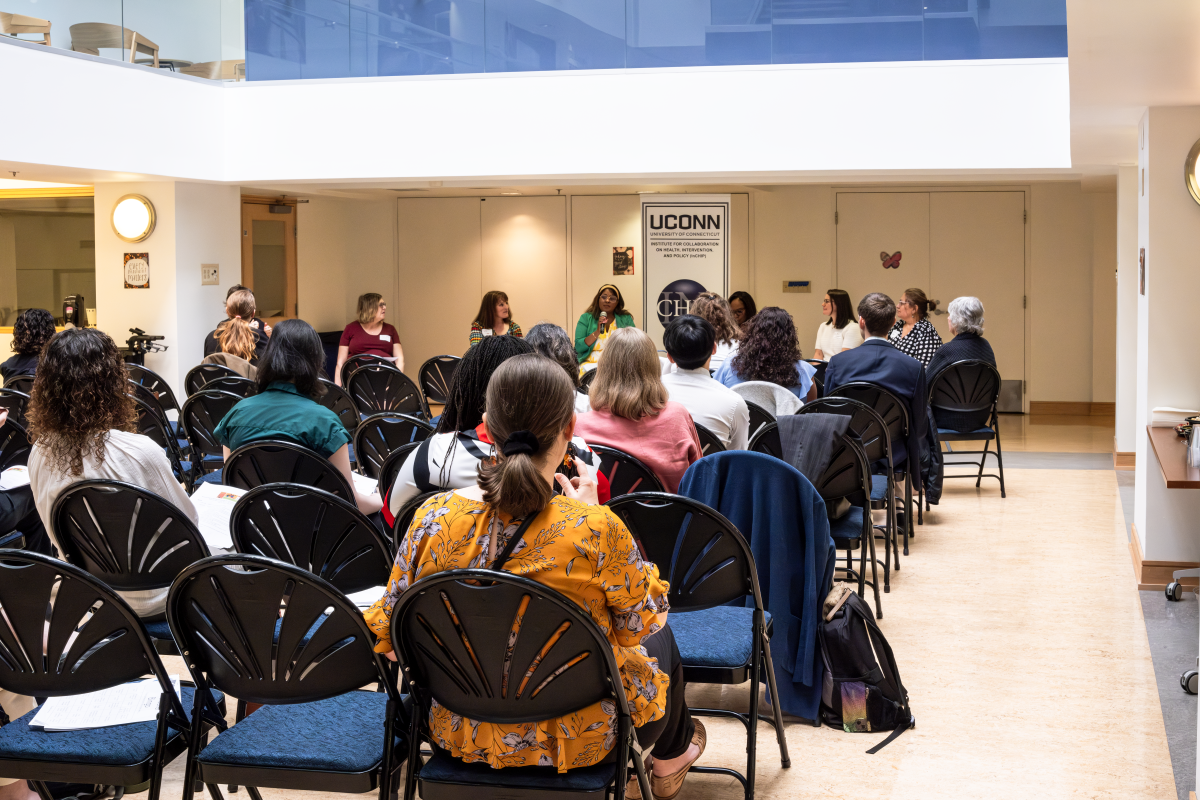Sowing the Seeds of Change in Danbury Schools
Gardens welcome students, employees, and visitors at all of Danbury’s schools, thanks to Anne Mead, the director of family, school, and community partnerships for Danbury Public Schools, and the many people and organizations she works with on the school garden initiatives. Her role includes working with partners and developing strategies for families to engage with the schools.
Mead ’06 (BGS) has a master’s and doctoral degree in educational and organizational systems and the Danbury Schools recruited her to lead the partnerships initiatives in 2008.
Mead is a UConn Extension Master Gardener volunteer and collaborates with this program and UConn Extension’s Expanded Food and Nutrition Education Program (EFNEP) in her work with Danbury Schools.
“I came into the district with a farm and garden approach to schools, and we have gardens at many schools now. We have a Farm to School Institute team and are implementing the 3C’s classroom, curriculum, and cafeteria,” she says.
Students have opportunities for experiential learning through the gardens, including planting, watering, and caring for the plants. This fosters their education, and nutrition awareness as they harvest produce from the garden and help prepare healthy meals.
Mead’s Extension involvement began as a child, growing up in Redding. Her mother was an avid gardener and healthy cook; a 4-H leader, as well as a cookbook committee member. Mead always loved gardening because of this early introduction. She and her husband live in Danbury and have extensive gardens on their property as well.
During the pandemic, Mead enrolled in UConn Extension’s Master Gardener Program and earned her certification.
“The Master Gardeners brought my horticultural understanding to a different level intellectually because of the amount of knowledge you walk away with; you understand the whys, permaculture, and wind patterns.” She also recently became an Advanced Master Gardener.
In addition to the skills and knowledge she has gained, Mead also appreciates the community connections Extension programming provides. She helps families who visit the Master Gardeners at the farmers market, providing resources and recommendations on types of vegetables to grow and scaling up their garden each year. She continues volunteering with the program and helping people with gardening and food choices, in addition to her role with the schools.
“I encourage everyone to visit an Extension location; there is one in every county,” Mead says. “Talk to the program coordinator and graduates, spend some time volunteering with the Master Gardeners or sit in on a class. Look at the projects in your community. Becoming a Master Gardener is one way to become informed and spend time in your community.”
Mead’s building in the Danbury School System is connected to the elementary school building, and this year, she received a grant from the Connecticut Master Gardener Association to add a pollinator garden for butterflies and insects on their playscape. She also serves on the district’s health and wellness committee, and they are developing healthier snacks, cutting down on highly processed, sugar-laden foods, and adding more fresh fruits and vegetables to the menus. The 3- to 5-year-olds participate in making the meals and then filling their plates.
“Anne Mead is a dynamic partner. She brings in-depth knowledge about greater Danbury and coupled with her knowledge of public education, especially understanding the needs of area students and their families, exemplifies how Extension increases its reach even further as we support and help grow these important initiatives,” Bonnie Burr, the assistant director of UConn Extension says.
One of her next projects will be helping bring a Green Academy to Danbury High School’s Wall to Wall Academy. This will include gardening aspects and career pathways, and she’s excited to incorporate her horticultural knowledge and Master Gardener experiences in this new initiative.
The gardening and nutrition projects are one aspect of Mead’s work with Danbury Public Schools, but the impact is far-reaching.
“We hope to see much better nutrition,” Mead shares. “Gardening with the students is a time without a lot of competition and very little technology, they can be themselves in the garden. The parents are participating too, and it’s building a sense of community with the youth and families.”
Follow UConn CAHNR on social media
Latest UConn Today
- Incoming UConn Medical Students Get Hands-On Summer Research ExperienceFor the first time the Health Career Opportunities Program of UConn Health offered matriculating UConn medical students summer research opportunities.
- Partnering with Communities to Improve HealthInCHIP’s Community Engagement Research Core’s latest networking event offers insights for successful community research partnerships
- Study Highlights Higher Rates, Risk Factors for Non-Fatal OverdosesA new opioid overdose study has identified several key risk factors associated with non-fatal overdoses drawing from a sample of people who use opioids in New Haven
- Archiving for Justice, Truth, and Memory: Unpacking the Baggage of What Went BeforeReflections on the importance of the newest addition to UConn’s ICTY Digital Archives, the Srebrenica Genocide Archives Collection.
- Multiple Sclerosis Patient Sees Bright FutureFrom unheard to understood
- UConn AUKUS Scholars Explore Undersea Vehicle Technology, International Collaborations in AustraliaFive College of Engineering students studied systems thinking and interdisciplinary teamwork essential in modern undersea vehicle development













